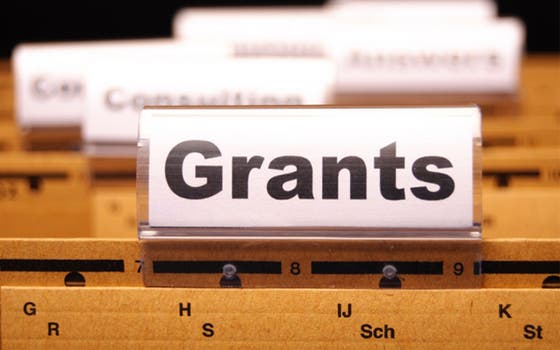Six Veni grants for researchers at UMC Utrecht

Lees artikel in het Nederlands >
The Netherlands Organization for Scientific Research (NWO) today awarded 188 promising young scientists a grant of up to € 280,000 through a Veni funding (Veni round 2022). Among them are six researchers from UMC Utrecht. With this grant, the laureates can further develop their own research ideas for the next three years.
The recipients of this prestigious grant and their research are:
| Recipients | Research |
|---|---|
Tom Driedonks PhD Central Diagnostic Laboratory | Finding the way in – Identifying entry and cargo release pathways of extracellular vesicles Cells in the body communicate with each other by sending and receiving tiny information packages, called extracellular vesicles (EVs). EVs play a role in various diseases, such as cancer, but can also be used to deliver medicine to diseased cells. We don’t fully understand how cells receive and unpack EVs. This is key in understanding how communication via EVs works. I will investigate which proteins in and around cells play a role in the receiving and unpacking of EVs. We can use this information to block disease-related EV uptake, and to more effectively deliver medicine into diseased cells. |
Richard van Jaarsveld PhD Center for Molecular Medicine | Uncovering the patho-molecular etiology of the novel XPO1-related neurodevelopmental disorder Inborn brain malformations often originate from heritable defects. Tracking these defects in the DNA can gain valuable insights into how the development of our most complex organ, the brain, is orchestrated. Defects in the XPO1 gene have recently been identified as a novel cause for brain anomalies. In this project, scientists will recreate these defects in the lab to study the impact on brain development. The expected results will forward our understanding of brain development, which could contribute to the prevention and treatment of inborn brain malformations. |
Theo van den Broek MD PhD Center for Translational Immunology | Stimulating the infant immune system: strengthening the relationship between young immune cells Intimate interaction of T cells of the immune system with B (antibody-producing) cells is essential for the generation of effective and long-lived protection against pathogens. This interaction is less effective in children. I discovered that very young T-cells are more functionally versatile and responsive than previously thought and respond to different triggers than adult T-cells. In this project I will investigate in detail how young T cells instruct antibody responses by B cells. A better understanding of the T:B-cell interaction may lead to increased effectiveness of childhood vaccinations. |
Ruben van Eijk MD PhD Department of Neurology and Neurosurgery | New evidence in the search for effective ALS drugs: a patient-centered strategy for drug research Debilitating neurogenerative diseases, such as amyotrophic lateral sclerosis (ALS), are characterized by highly variable symptoms, complicating the assessment of new treatments, and delaying the development of effective therapy. Patients are thereby exposed to potentially ineffective and harmful drugs, or beneficial treatments are missed in clinical trials. I will develop novel statistical methods for clinical trials to simultaneously encompass the totality of symptoms, patient preferences, prognosis, and clinical relevance. This research will redefine treatment benefit for patients, enabling more efficient, impactful and patient-focused drug development to improve patient outcomes. |
Dr. Mylene Jansen PhD Department of Rheumatology and Clinical immunology | Visualizing the needs of osteoarthritis patients: learning from the exceptional cases of cartilage repair Osteoarthritis is a highly prevalent disease with high impact on patients, healthcare, and society, characterized by degeneration of joint cartilage. Successful treatments should therefore induce cartilage regeneration, but most investigational approaches thus far have failed. However, there are patients who show cartilage repair, after specific treatment or even spontaneously. In this project, I will use state-of-the-art image analysis techniques, combining data and images from existing cohorts with patients showing this unique repair activity, to identify conventional and novel joint characteristics that may be essential to induce repair in osteoarthritic joints. This will directly provide novel tools for stratified treatment modalities. |
Dr. Renske Wadman MD PhD Department of Neurology and Neurosurgery | SMA BABIES - Systematic Multimodal Analysis to BiomArkers and Bulbar Function In (pre)symptomatic SMA SMA is a hereditary severe childhood-onset motor neuron disorder and the first-ever disorder effectively treated by gene-targeting therapies. They dramatically improve disease course, especially in patients early-diagnosed in the newborn screening program. Pre-symptomatic treatment is key, but cure is incomplete, and we are in desperate need of biomarkers that predict disease severity and prognosis at time of diagnosis. The high societal impact due to extreme costs of these therapies also demands treatment optimization. My innovative multi-modal approach combines clinical scores, genetic, protein, ultrasound and EMG-studies, to evaluate and predict disease severity, variability, and treatment efficacy in early-diagnosed babies with SMA. |
In addition to the 6 Veni grants formally awarded to UMC Utrecht, Najim Lahrouchi (Department of Experimental Cardiology, Amsterdam UMC and Department of Pediatrics, WKZ) also has received a Veni grant. Although this grant is officially registered at NWO under Amsterdam UMC, Najim combines his research with his training to become a pediatrician at the WKZ, and is therefore also worth mentioning. A summary of his research: Congenital heart disease is a common birth defect and in the majority of cases the underlying genetic cause remains unknown. The is partly due to the rudimentary understanding of how the human heart develops. I combine studies in human fetal hearts with genetic analyses in large patient sets with congenital heart disease to identify novel genes underlying these disorders.
About the Veni grants
The Veni is a personal scientific grant, is part of the NWO Talent Program and is aimed at researchers who have recently obtained their PhD degree. They will conduct research within the full breadth of science. The 188 grants from the 2022 Veni round are divided as follows: 26 grants at ZonMw, 23 at Applied and Technical Sciences (TTW), 69 at Natural Sciences (ENW) and 70 at Social Sciences and Humanities (SGW). The projects receiving funding therefore focus on the most diverse topics: from river deltas on Mars to future-proof GP care and from the crusades of Louis IX to flying robots for maintenance of offshore wind turbines.
Veni grants are awarded annually by NWO. Among the 1462 preliminary applications, 792 (54 percent) were men, 648 (44 percent) were women. Of 22 applicants, the gender was unknown. Of the 188 grants, 100 went to male and 88 to female applicants; honor percentages of 13 and 14 percent, respectively.

